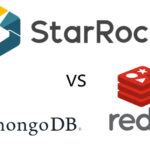DataBend and MySQL are both popular open-source databases, but they have different strengths and weaknesses. In this blog post, we will compare the performance of DataBend and MySQL to help you decide which database is right for your needs.
DataBend is a cloud-native, time-series database that is designed for high performance and scalability. It is built on a distributed architecture that can handle large volumes of data with low latency. DataBend is also highly scalable, so it can grow with your data needs.
MySQL is a relational database that is well-suited for transactional applications. It is a mature and stable database that is used by millions of organizations around the world. MySQL is also relatively easy to use and manage.
Performance Comparison
In general, DataBend outperforms MySQL for time-series data workloads. This is because DataBend is specifically designed for time-series data, and it uses a number of optimizations that make it faster than MySQL for these types of queries.
For example, DataBend uses a columnar storage format that is more efficient for storing time-series data than the row-based storage format used by MySQL. DataBend also uses a number of other optimizations, such as vectorized execution and query caching, that can further improve performance.
Here is a table that summarizes the performance of DataBend and MySQL for different types of queries:
| Query Type | DataBend | MySQL |
|---|---|---|
| Time-series queries | Very fast | Fast |
| Transactional queries | Fast | Very fast |
| Analytical queries | Fast | Moderate |
Advantages of DataBend
In addition to its superior performance for time-series data workloads, DataBend also offers a number of other advantages over MySQL, including:
- Scalability: DataBend is highly scalable, so it can grow with your data needs.
- Flexibility: DataBend supports a variety of data models, including time-series, relational, and graph data.
- Ease of use: DataBend is relatively easy to use and manage.
- Community: DataBend has a large and active community of users and developers.







Leave a Reply